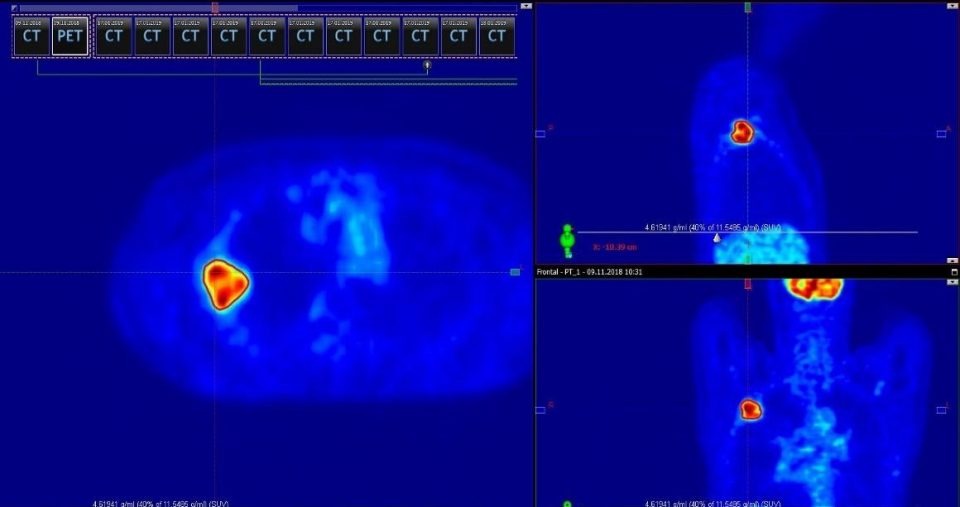By lunchtime, on some days I have a heavy head. A couple of years earlier, I might have blamed it on not drinking enough water. Or drinking too much alcohol. But with the eruption of unannounced white hair, I have become wiser with time. Only agua, no vino unless its a Saturday, senor. I realized as I hastily gulped down my lunch that this inexplicable fatigue was most likely a consequence of the six hours in the out patient department. Physically, it involved sitting on our asses. However, the mental fatigue was always all pervasive but rarely acknowledged.
I remember two women in particular from today. The first was a primary carcinoma vagina patient, a rarity in gynaecological malignancies. She had presented with localized, early stage disease and had been treated with a combination of intracavitary and interstitial brachytherapy – a skillfully demanding task for the doctors and medical physicists to plan radiation treatment. The doses have to be high enough to kill the disease and yet spare the surrounding sensitive bowel and bladder. The intense scribbling present in her file showed that a lot of energy had gone to treat this patient by the top guns from my department. However, this resulted in less than six months of symptom free, normal life. The disease recurred at the same site and today when I had examined her, it had spread and now involved her cervix. Experiences like this make you question why in some patients radiation fails in spite of immaculate care. It is humbling when the intrinsic pathology of the disease defeats the treatment over which we have put so much confidence. Palliation of symptoms is what remained for this young, forty year old lady whose most private body part had been consumed by cancer.
The second lady was a patient having low grade carcinoma ovary. The diagnosis might have the word low grade in it but her disease was so extensive than the gynaecologists could only debulk the disease. It had been impossible to remove the deposits scattered all throughout her abdominal cavity. Chemotherapy was the only option left since it could arguably reach through blood to all the different sites of disease. She had completed her chemotherapy – weeks of toxic drugs being pumped into her body. With raised eyebrows which she had carefully drawn (she had lost all of her hair), her eyes remained fixed at my face as I read the report and gave the verdict of her future life. It wasn’t good, in fact it was worse. The disease had progressed on treatment, she wasn’t responding to the best of what we had to offer. I knew, whatever we would do next left her with minuscule chance of making a full recovery. As I clung on to the textbook SPIKES approach to breaking bad news, I realized that she wasn’t registering half of what I was saying. She kept on repeating in a loop that she felt perfectly fine and was planning to join work. After a while, for I had to see other patients and keep the counter going, I started feeling the inadequacy of my skills and the ticking clock. Honestly, I didn’t know what to say any more and just wanted to end the conversation – stop looking at that hopeful face who kept on asking if there was any other option left. There were no magic beans but I didn’t want to be the one to say it to her. I sincerely hated my job in moments like this.
How the palliative care physicians and nurses do it, I can’t imagine. Many budding doctors would say that they would want to become a neurosurgeon or a cardiologist – there is a charisma surrounding certain specializations. Fortunately, palliative medicine is gaining more recognition with time. The mental fortitude and tenacity that these group of specialists possess is highly commendable. The difference they make to the lives of cancer patients is massive. There are more than 9.5 million cancer deaths occurring globally every year. In the end, patients don’t need more treatment – they need more personalized attention to symptoms, both physical, mental, social and emotional.
These conversations drain a lot of energy – how do we advice someday to live the remaining days of their lives? It is hard but with practice and time, hopefully it will get better. Hopefully.

Loved this post. I keep having these conversations too, just with a different group of patients than yours. Its somehow beautifully tragic, that you can often remember the names and faces, even after they have passed.
LikeLike